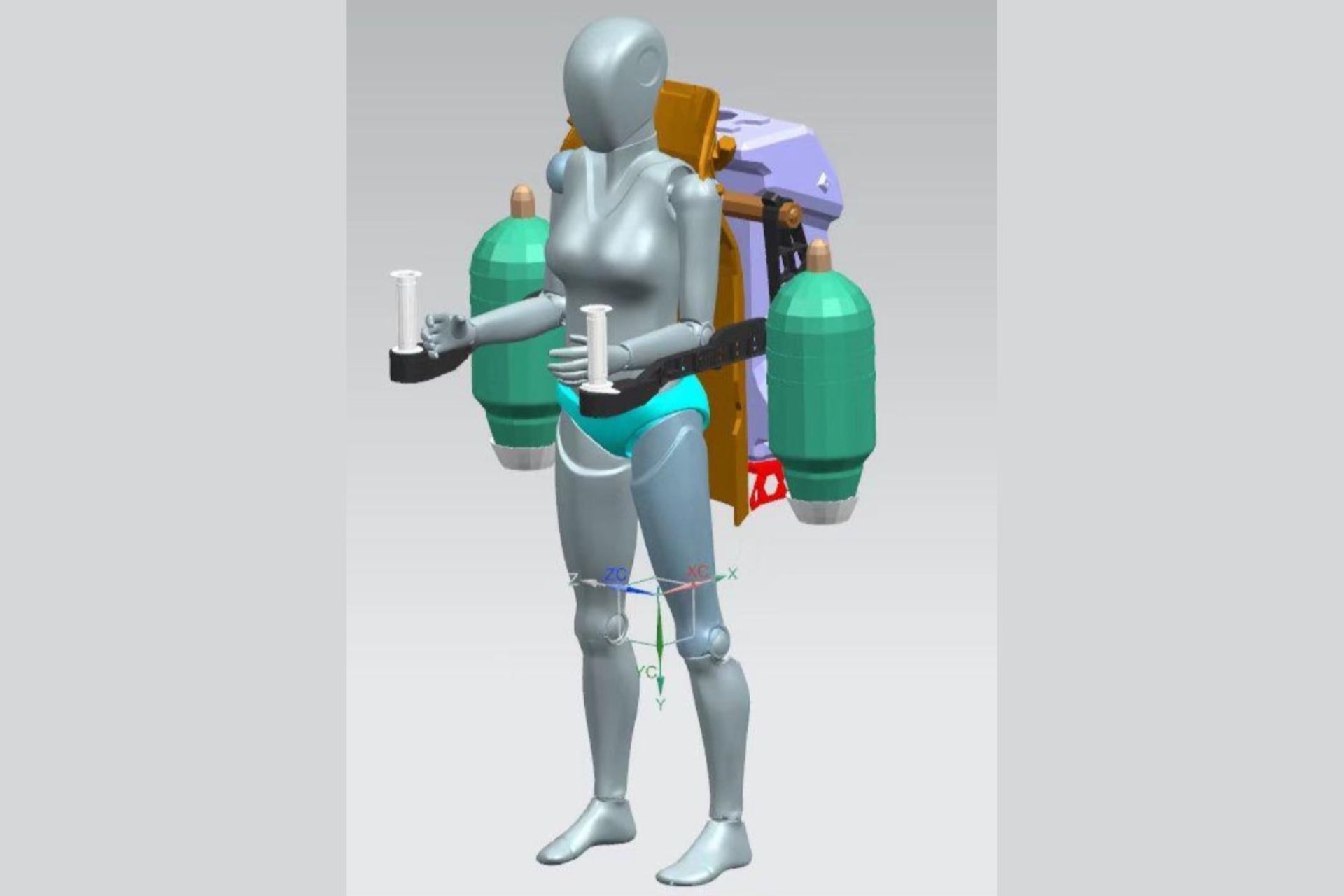Breaking News
Flight Systems for Special Forces: Ambitious Project of Turkish Company Nefer Savunma.
The Turkish company Nefer Savunma, which specializes in IT and defense services, has recently unveiled an innovative project to develop Flight Systems for special forces. This initiative, leveraging advanced technologies, could significantly enhance the operational capabilities of specialized units while also appealing to extreme sports enthusiasts. Powered by two turbojet engines, the jetpack promises aerial mobility.

For special forces, the primary interest in jetpacks lies in their ability to enhance mobility and provide access to otherwise unreachable areas (Picture source: Nefer Savunma)
Nefer Defence Inc., a notable player in the technological and military sector, is exploring solutions to meet the growing need for rapid mobility and access to challenging environments. The Jetpack project, still in the development phase, aims to provide users with autonomous flight capability through a compact and efficient device.
Propelled by two turbojet engines, the jetpack ensures sufficient thrust for agile movement in complex environments. While primarily designed to strengthen military interventions, the concept may also attract interest in recreational contexts, broadening its range of applications.
The development of jetpacks by defense companies for special forces has seen notable advancements in recent years. Companies such as JetPack Aviation and Gravity Industries have developed devices capable of propelling individuals at impressive speeds, reaching up to 200 km/h, with a flight endurance of approximately ten minutes. These technologies have drawn the attention of military organizations, particularly for missions requiring speed and discretion.
Various military forces have conducted tests to evaluate the operational effectiveness of jetpacks. The British Royal Navy, for example, has tested their use for boarding moving vessels, showcasing their potential in maritime operations. Similarly, the United States Special Operations Command has partnered with specialized companies to explore the integration of these devices into their missions.
For special forces, the primary interest in jetpacks lies in their ability to enhance mobility and provide access to otherwise unreachable areas. These devices offer the capability to quickly overcome natural or man-made obstacles, conduct discreet infiltrations, and perform rapid extractions. By reducing transit times and increasing tactical flexibility, jetpacks could prove to be valuable assets in special operations, improving both mission efficiency and operator safety.


























